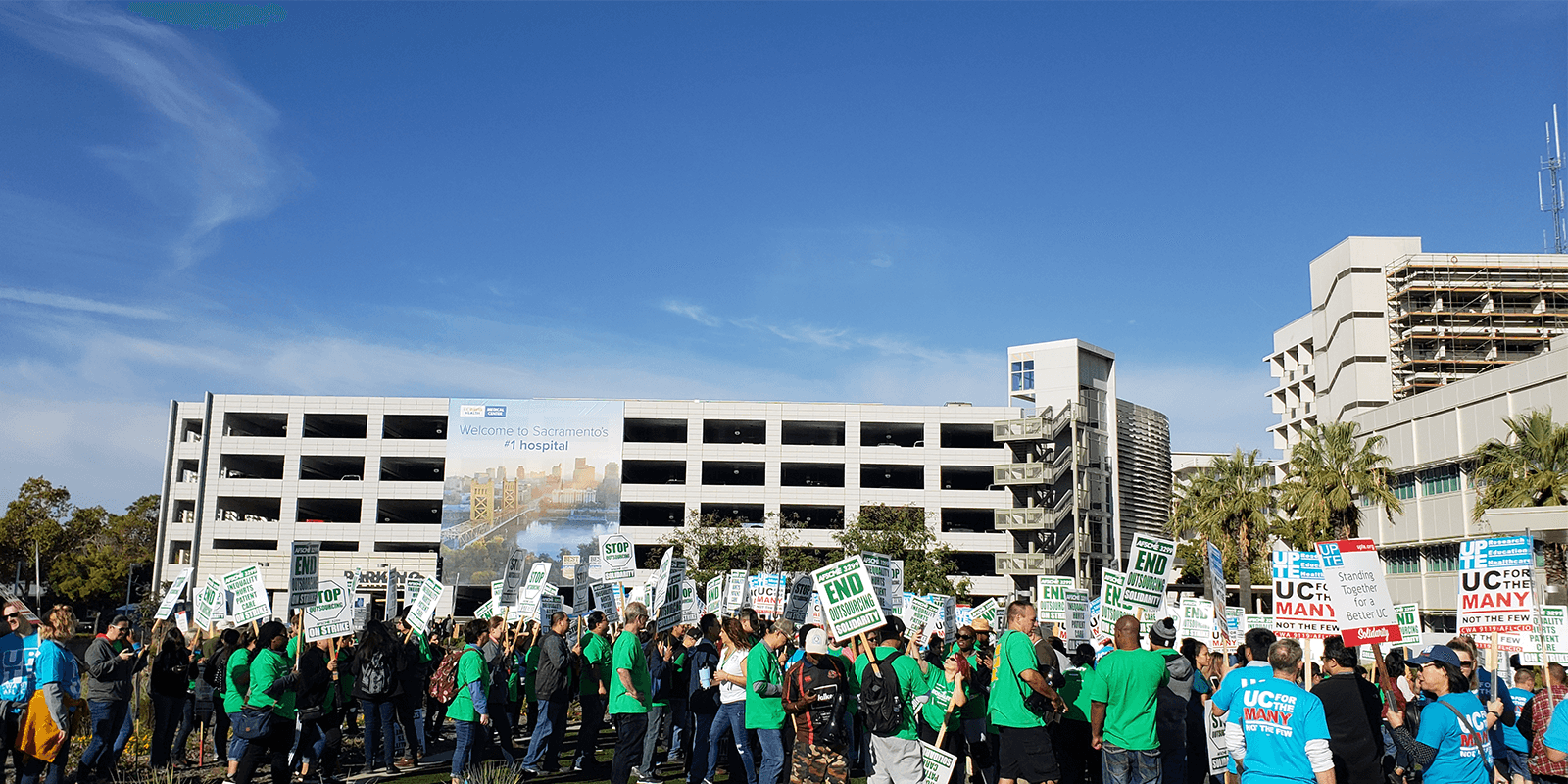University of California workers are striking for the second time this year with renewed conviction in their demands for fair pay, safe staffing and improved patient care. More than 15,000 patient care technical workers in all five UC medical centers were joined by more than 9,000 university service workers and 15,000 university professional and technical employees.
Altogether, some 40,000 university employees joined together to stand up against extreme income inequality at the university, including gender- and race-based inequality, and for respect on the job. Patient care technical workers and service workers are members of AFSCME Local 3299, and professional and technical employees are members of UPTE-CWA 9119.
The workers are protesting the outsourcing of jobs that has led to a decline of 37 percent in the number of black workers at UC since 1996, to quote but one figure. Outsourcing, as well as extreme income inequality at the medical centers, are threatening workers’ pay, benefits, retirement security, as well as safe staffing, patient care and workplace safety.
